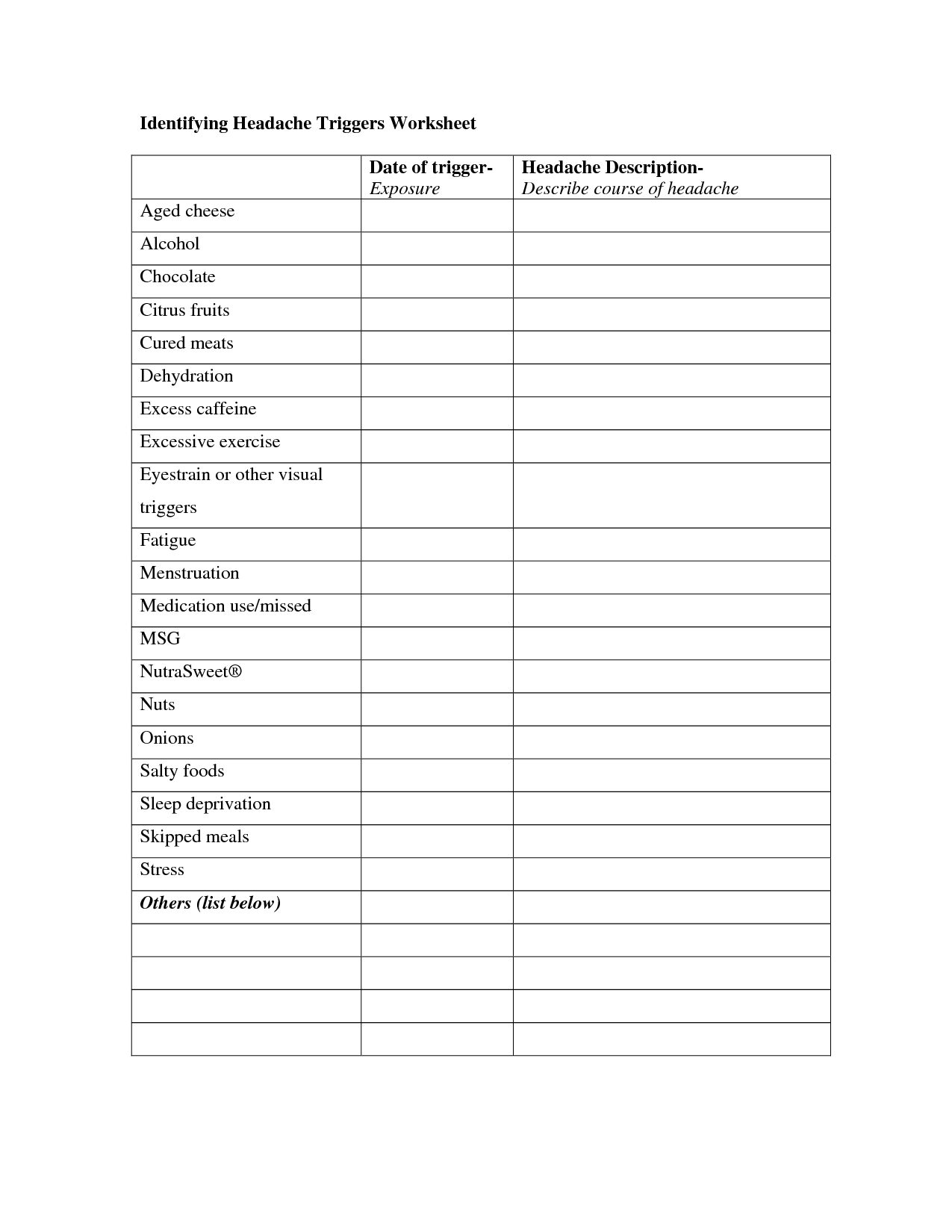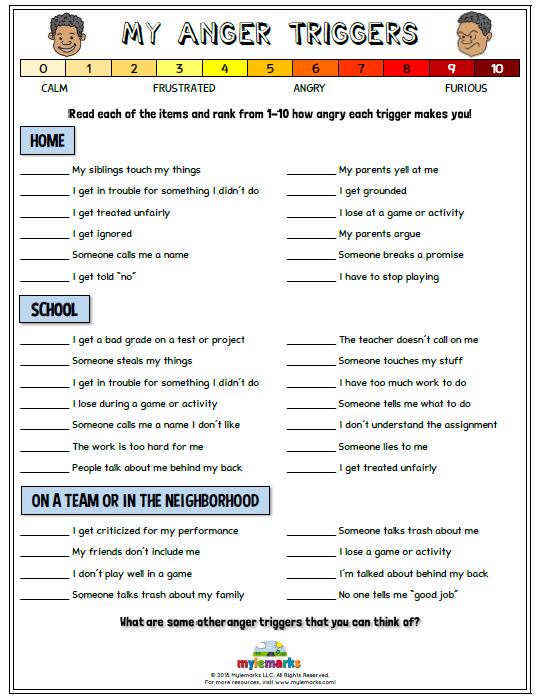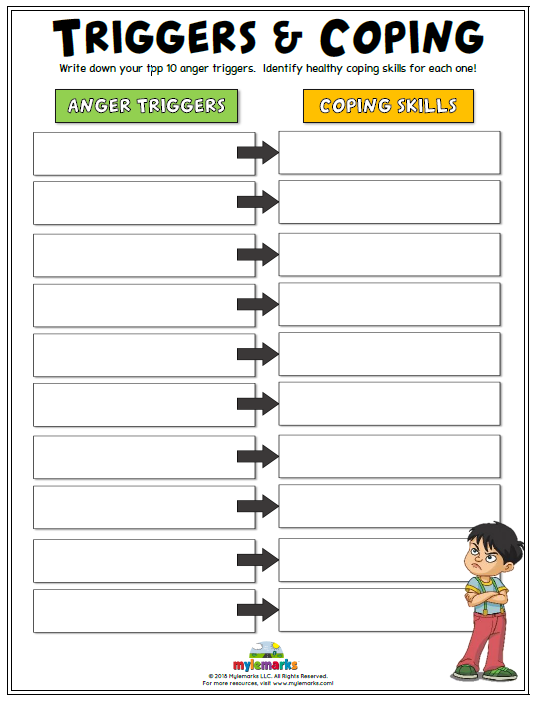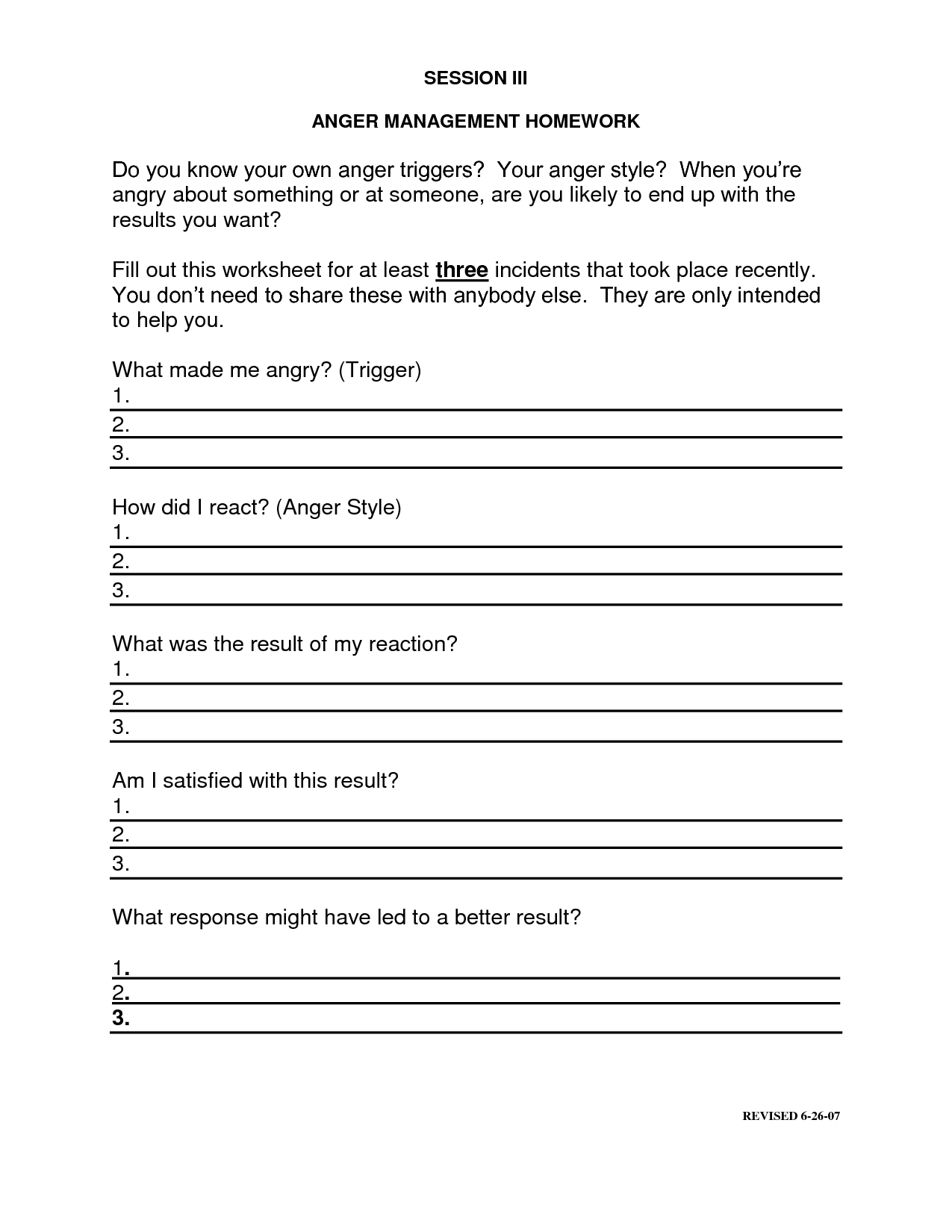If you’re struggling with substance abuse or addiction, one of the first steps toward recovery is identifying triggers that contribute to your substance use. These triggers can be anything from stress and anxiety to social situations or certain people. To help you get started, here are some worksheets to aid in identifying triggers:
Identifying Triggers Worksheets
 These worksheets provide a space for you to list triggers that contribute to your substance use. You can use these worksheets to help identify patterns in your behavior and to develop a plan for avoiding or managing those triggers in the future. It’s important to be honest and thorough when completing these worksheets so that you can get the most benefit from them.
These worksheets provide a space for you to list triggers that contribute to your substance use. You can use these worksheets to help identify patterns in your behavior and to develop a plan for avoiding or managing those triggers in the future. It’s important to be honest and thorough when completing these worksheets so that you can get the most benefit from them.
Printable Anger Management Worksheets for Kids
 If you struggle with anger management, these worksheets can help you identify triggers that contribute to your anger and develop strategies for managing those triggers. These worksheets are also great for kids who may be struggling with anger or frustration, as they offer a simple and visual way to work through those emotions.
If you struggle with anger management, these worksheets can help you identify triggers that contribute to your anger and develop strategies for managing those triggers. These worksheets are also great for kids who may be struggling with anger or frustration, as they offer a simple and visual way to work through those emotions.
Trauma Triggers Worksheet

 For those who have experienced trauma, identifying triggers can be a crucial step in the healing process. These worksheets provide a space for you to list trigger events, physical sensations, and emotional responses. By understanding your triggers, you can work to manage your reactions to them and find ways to cope with the effects of trauma.
For those who have experienced trauma, identifying triggers can be a crucial step in the healing process. These worksheets provide a space for you to list trigger events, physical sensations, and emotional responses. By understanding your triggers, you can work to manage your reactions to them and find ways to cope with the effects of trauma.
Free Printable Anger Buttons Worksheet
 This worksheet is a great visual aid for kids who struggle with anger management. The worksheet features different colored “buttons” that represent different levels of anger. Kids can color in the buttons to show how angry they feel, and can then identify triggers that contribute to those feelings. By using this worksheet, kids can learn to manage their anger in a healthy and productive way.
This worksheet is a great visual aid for kids who struggle with anger management. The worksheet features different colored “buttons” that represent different levels of anger. Kids can color in the buttons to show how angry they feel, and can then identify triggers that contribute to those feelings. By using this worksheet, kids can learn to manage their anger in a healthy and productive way.
Anger Management Worksheets
 These worksheets provide a space for you to identify trigger events, physical sensations, and negative thoughts or behaviors associated with your anger. By understanding these triggers, you can develop strategies for managing your anger and reacting to situations in a more positive and productive way.
These worksheets provide a space for you to identify trigger events, physical sensations, and negative thoughts or behaviors associated with your anger. By understanding these triggers, you can develop strategies for managing your anger and reacting to situations in a more positive and productive way.
What Triggers Your Anger Worksheets
 Similar to the previous worksheets, this worksheet provides a space to identify trigger events, physical sensations, and negative thoughts or behaviors associated with your anger. The worksheet also features a section on common anger triggers, so you can identify patterns in your behavior and develop strategies for managing those triggers in the future.
Similar to the previous worksheets, this worksheet provides a space to identify trigger events, physical sensations, and negative thoughts or behaviors associated with your anger. The worksheet also features a section on common anger triggers, so you can identify patterns in your behavior and develop strategies for managing those triggers in the future.
Triggers and Coping Skills Worksheets
 These worksheets provide a space for you to identify your triggers and develop strategies for coping with them. The worksheets feature different coping skills and techniques, such as deep breathing and positive self-talk, that can help you manage your reactions to triggers and reduce stress and anxiety.
These worksheets provide a space for you to identify your triggers and develop strategies for coping with them. The worksheets feature different coping skills and techniques, such as deep breathing and positive self-talk, that can help you manage your reactions to triggers and reduce stress and anxiety.
Mental Health Triggers Worksheet
 This worksheet is designed to help you identify triggers that contribute to mental health conditions such as anxiety and depression. By understanding your triggers, you can develop strategies for managing them and preventing or reducing symptoms. The worksheet also includes space to identify coping skills that have worked for you in the past.
This worksheet is designed to help you identify triggers that contribute to mental health conditions such as anxiety and depression. By understanding your triggers, you can develop strategies for managing them and preventing or reducing symptoms. The worksheet also includes space to identify coping skills that have worked for you in the past.
Anger Management Worksheet PDF
 These worksheets provide a space for you to identify trigger events, physical sensations, and negative thoughts or behaviors associated with your anger. The worksheets also feature different coping skills and techniques, such as deep breathing and positive self-talk, that can help you manage your anger and reduce the likelihood of future outbursts.
These worksheets provide a space for you to identify trigger events, physical sensations, and negative thoughts or behaviors associated with your anger. The worksheets also feature different coping skills and techniques, such as deep breathing and positive self-talk, that can help you manage your anger and reduce the likelihood of future outbursts.
Remember, identifying triggers is just one step in the process of recovery or managing mental health conditions. It’s important to seek professional help if you’re struggling with substance abuse, addiction, or mental health issues. These worksheets can be a helpful tool for supplementing therapy and self-care practices, but should not be used as a substitute for professional treatment.
Take care of yourself and use these worksheets as a resource to help you achieve your goals and improve your mental health and well-being.